Your Skin, Your Future
Book in for your skin check with our doctors today.
Who Should Get a Skin Check?
The Skin Cancer Council recommends that every one in Western Australia get regular skin checks regardless of skin type or ethnicity due to the high prevalence of skin cancer in our state. However, there are certain risk factors that increase your risk of skin cancer including:
- A strong family history or personal history of skin cancer
- Immunosuppression
- Skin conditions such as uncontrolled psoriasis or eczema
- Lighter skin types that do not tan
- Significant amounts of sun exposure such as in our FIFO clientele
Can I check my own skin at home?
Yes you can certainly monitor your own skin at home and we encourage this! However, nothing beats the years of experience that our GPs provide to you. There are still a few things to look for at home though, including:
- Rapidly growing moles or spots that have multiple colours
- Pink and brown, makes you frown
- Lesions that are ulcerated, scabby, and do not heal
- Lesions that often bleed or blemish easily
Types of Skin Cancer to Check
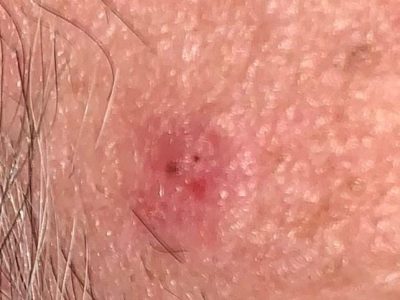
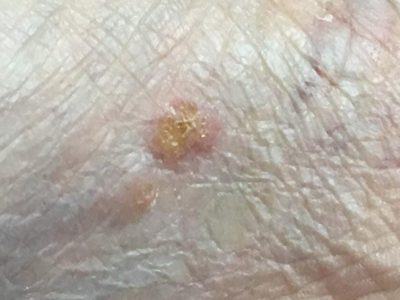
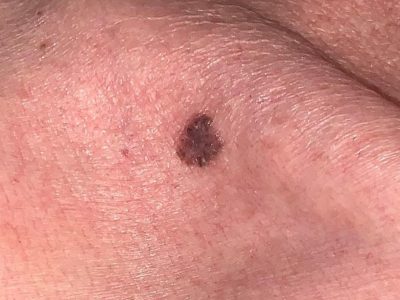
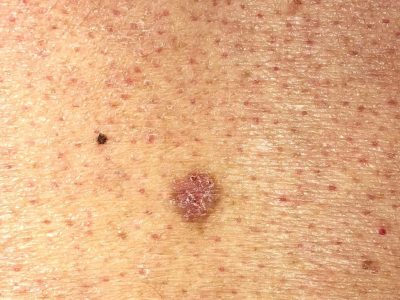
Basal Cell Carcinoma (BCC)
- Most common: Accounts for 75% of skin cancers.
- Appearance: Pearly, pinkish lumps or scaly patches, often on sun-exposed areas like the face.
- Risk: Rarely spreads but can damage nearby tissue if untreated.
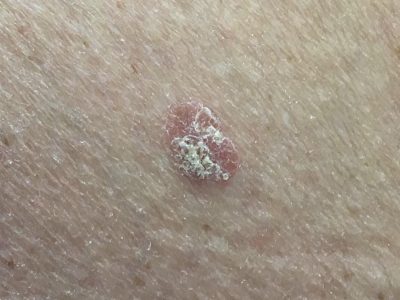
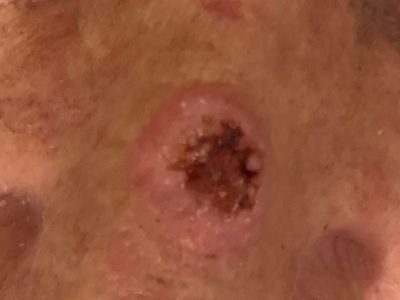
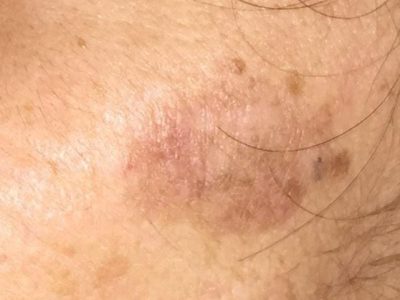
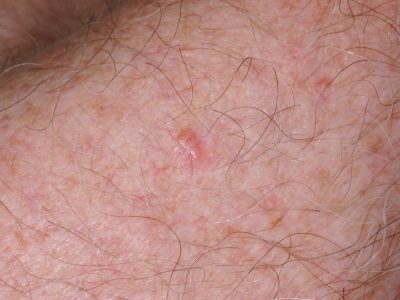
Squamous Cell Carcinoma (SCC)
- Fast-growing and commonly appearing on on hands and face.
- Appearance varies: It can be a firm, red nodule. Or a scaly, crusty patch. Or a sore that doesn’t heal or heals and reappears. Or a rough, thickened patch of skin. Sometimes have a wart-like appearance
- Solar keratoses are rough, scaly patches on sun-exposed skin – considered precancerous and can sometimes develop into SCC if left untreated.
- Risk: Can spread if ignored, requiring prompt treatment.
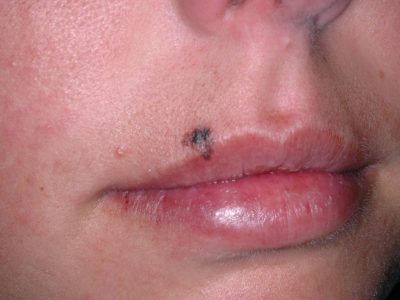
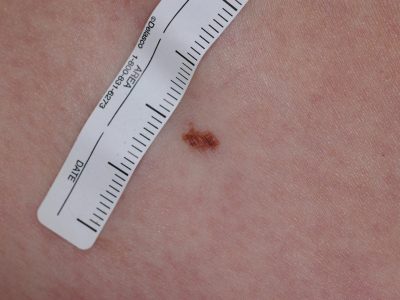
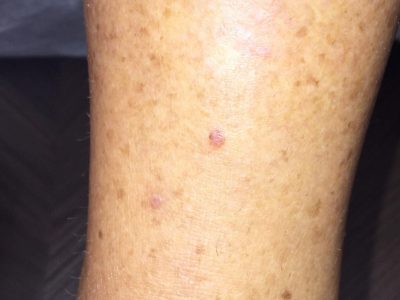
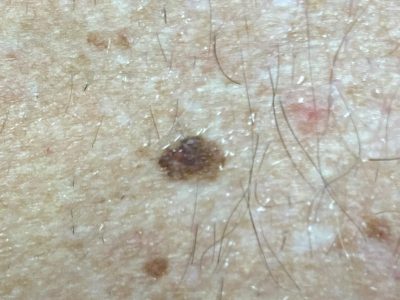
Melanoma
- Most serious: Grows quickly and can spread to organs.
- Unlike some other cancers more common in older adults, melanoma can affect younger individuals.
- Signs: New or changing moles, irregular borders, multiple colours, itching, or bleeding.
- Can occur anywhere on the body even in less obvious places like under fingernails, toenails, feet soles.
- Early detection is crucial: Melanoma is highly treatable in its early stages.
All Images: ISIC Archive https://www.isic-archive.com/ - Creative Commons licensed.
How Can a Doctor Help?
Your GP knows your medical history and can examine your skin thoroughly. If needed, they can refer you to a specialist for further assessment. GPs and specialists use special tools and techniques to check your skin safely and accurately.
What Happens During a Professional Check?
Here’s what typically happens during a skin Check with your GP:
- Medical history: Expect questions about sun exposure, past skin cancers, or family history, and any other medical conditions. You’ll likely be asked if you’ve noticed any changes in your moles or any new spots on your skin.
- Examination: The GP will check all areas, including scalp and soles, looking for moles, freckles, birthmarks, and other skin lesions. GP might gently feel certain moles or lesions to assess their texture and thickness.
- Dermoscopy: A handheld device magnifies spots to detect cancer early
- Documentation: If the GP identifies any moles or spots that look concerning they will likely document the lesion’s characteristic and potentially take a clinical photograph.
- Biopsy: If a spot looks suspicious, a small sample is tested and sent for analysis.
- Excision: if a lesion is small and highly suspicious, the GP might perform a minor surgical excision to remove it entirely and send it for pathology.
- Management plan: GP will advise depending on findings and recommend appropriate follow-up. For highly suspicious or complex lesions, the GP may refer you to a dermatologist.
If you notice any changes,
don’t delay—see your GP.
Dr Michael “Mikey” Dawber has special interests in dermatology and skin cancer.
He is a member of the Skin Cancer College Australasia, and furthering his skills enrolled in an Advanced Clinical Certificate of Dermoscopy.
If you’re at high risk and haven’t had a skin check in some time, or have noticed anything unusual during a self-examination, book an appointment with Dr. Mikey to ensure early detection.